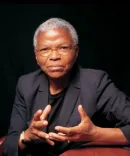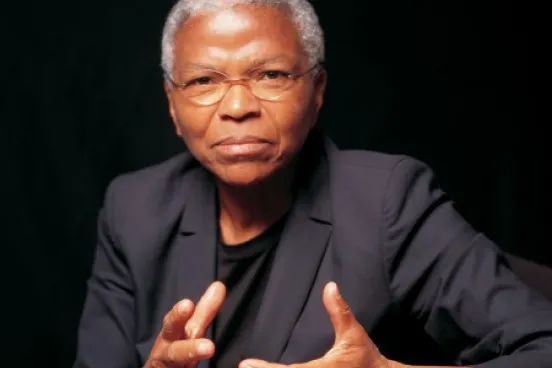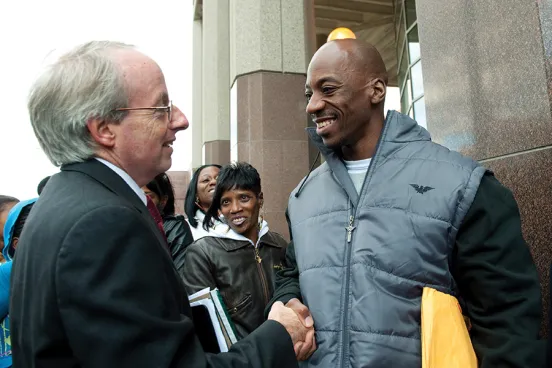Section: Features
64 results


Features Spring 2015
Schneider on the Failure of Mandated Disclosure
Mandated disclosure is a Lorelei, luring lawmakers onto the rocks of regulatory failure. Mandated disclosure is alluring because it addresses a real problem, the problem of a world in which non-specialists must make choices requiring specialist knowledge. Its solution is charmingly simple: If people face unfamiliar and complex decisions, give them information until the decision is familiar and comprehensible.


Features Spring 2015
The Memory of Detroit—and Beyond
Alumnus Clarence M. Burton traveled the globe to acquire historical documents. His collection—including some 500,000 books and 250,000 images—spans 400 years of North American history and is regarded as one of the best in the nation. On May 21, the Detroit Public Library will commemorate its 150th anniversary and the 100th anniversary of the Burton Historical Collection.


Features Fall 2014
Civil Rights, Women’s Rights
The original Civil Rights Act language did not include orotections based on sex. Martha Griffiths, ’40, had something to say about that.


Features Fall 2014
A Page in Michigan Law History: Printing Course Packs, One Mimeograph at a Time
While the Computer Age has produced countless companies whose origins can be traced to their founders’ dorm rooms, college-age ingenuity didn’t begin with Facebook, Google, or Microsoft. For Ann Arbor-based book printer and manufacturer Edwards Brothers Malloy, it started with the mimeograph.


Features Fall 2014
Startup Central
If you want to be an entrepreneur, understand that you’ll have to be part of a team if you’re going to be successful. This, according to Geoff Entress, ’98, a Seattle-based investor who has backed more than
125 companies in the past 15 years.
More advice from Entress: Be comfortable with risk. Be visionary. Don’t be a jerk. And go to law school.


Features Fall 2014
Mary Frances Berry, ’70: A Trailblazer in the Fight to End Discrimination
Mary Frances Berry, ’70, served from 1980 until 2004 on the U.S. Commission on Civil Rights, including as chair. Later, she stood with Nelson Mandela to end apartheid in South Africa and was imprisoned for it. At the 50th anniversary of the Civil Rights Act, she looks back on her career, her accomplishments, and the long list of items still outstanding in the fight to end discrimination.


Features Fall 2014
Tales from the Clinic: Putting the Contract Before the Horse
Typically, clients approach the Law School’s General Clinic for assistance—but every so often, a case comes from within, spurred by an issue close to the heart of a student attorney. One crisp January day, Mary Watkins, ’14, went to see a man about a horse.


Features Fall 2014
Roger Wilkins, ’56, Honored as Distinguished Alumnus
Roger Wilkins exposed injustice and fought for equality—through the complex lens of being a black man in America—throughout his career as a public servant, educator, and Pulitzer Prize-winning journalist. In honor of Wilkins’s vast and varied accomplishments, the Law School is honoring him as its 2014 Distinguished Alumni Award recipient.


Features Spring 2014
Imprisoned, Exonerated — and Now an “Unsecured Creditor”
Dwayne Provience spent almost a decade in prison before the Michigan Innocence Clinic at the U-M Law School won his exoneration in 2010. He filed a civil lawsuit against the city, and a settlement panel proposed a payment of $5 million. Now he's on a list of Detroit’s unsecured creditors.


Features Fall 2014
Bagenstos on Class-Not-Race
Throughout the civil rights era, strong voices have argued that policy interventions should focus on class or socioeconomic status, not race. At times, this position-taking has seemed merely tactical, opportunistic, or in bad faith. I am more interested in the people who clearly mean it.

